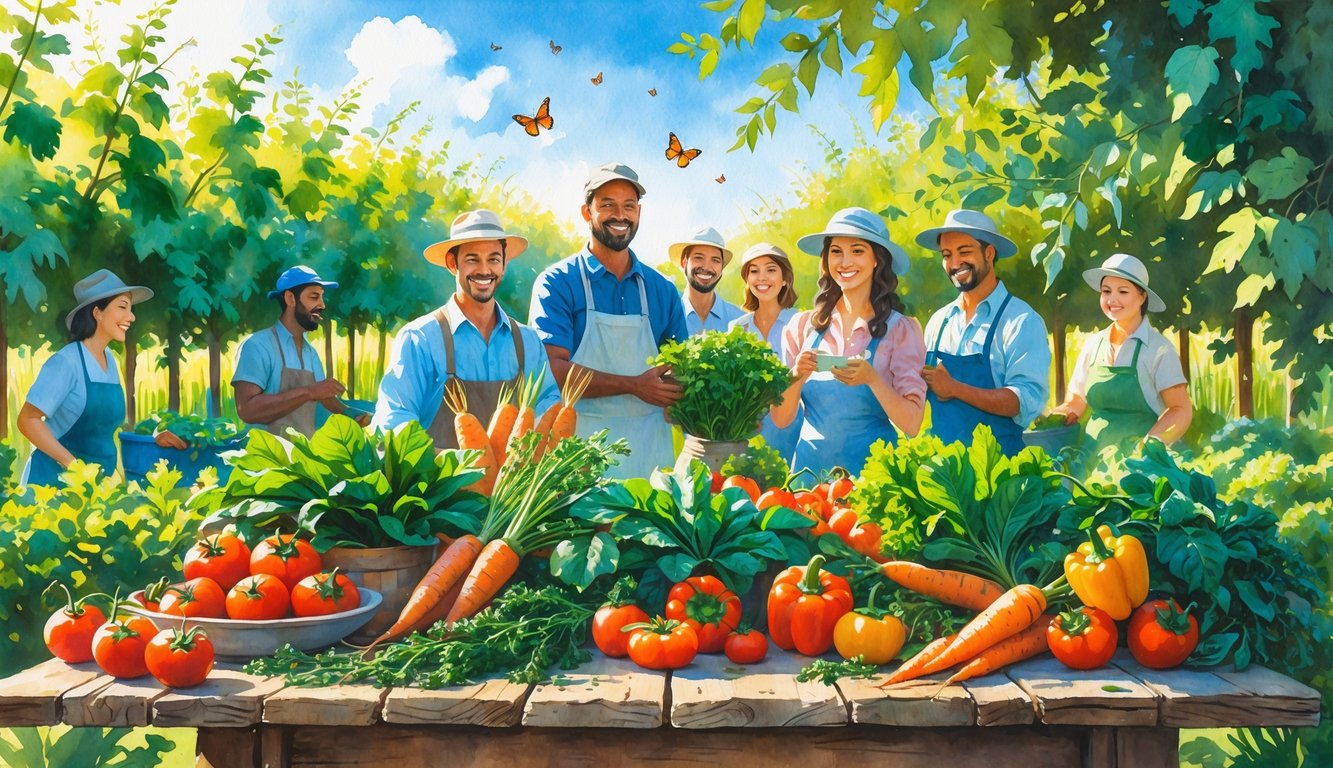
Frequently Asked Questions
I’ve dug through so many newsletters, studies, and grocery store arguments about organics, and I still don’t have all the answers. Regulations are strict, but there’s so much noise—everyone’s got a take on whether organic is worth it.
What exactly defines food as organic, and how does it differ from conventional produce?
What even counts as “organic” anymore? It’s not just about skipping pesticides. USDA inspectors actually show up at farms, checking rules, every season. Processing companies have to get certified too, or their stuff doesn’t get that label (and yes, I’ve checked—organic certification details).
Then my neighbor asks why her backyard tomatoes can’t be called “organic” if she never sprays them. Nope. You need official certification, not just good intentions. I keep forgetting it’s not just about what you don’t use.
Can you tell me if there’s a health advantage to eating organic foods over non-organic varieties?
Sometimes people say, “You’re just paying for the sticker.” Maybe. But there’s some research (2018, I think?) hinting at a lower cancer risk if you eat organic, at least for people who log their food for studies. Then an oncologist on TV shrugs and says it’s just eating more plants that matters, sticker or not (nutritional benefits debate).
Organic eggs, meat, and dairy sometimes have more omega-3s. My old coworker ate regular everything and had great cholesterol. She didn’t care about labels. I’ll try anything tasty if it helps my heart, but I’m not expecting miracles from an apple.
I’ve heard various viewpoints, but is there actual evidence that organic produce is safer or better for the environment?
Environmental debates at my house never end—my cousin’s obsessed with soil and says worms love organic dirt more. I keep seeing headlines about less pesticide residue and lower toxic metals, but if you read deeper, you’ll find safety standards are strict for both types (environmental and health findings).
Is it safer? Sometimes. Cleaner? Maybe. I can’t stop wondering how giant farms pull off “organic” at scale when my windowsill basil dies if I forget to water it. Compost definitely smells worse than fertilizer, that’s for sure.
What are some key benefits one can expect when choosing to consume organic products?
Let’s be honest, every label screams “purer nutrients” and “sustainably grown,” but after a while, doesn’t that just sound like background noise? I stumbled on some study—totally forgot which university, sorry—that said organic and non-organic farms actually cough up similar yields when it’s dry out. So, that old “organic can’t feed the world” line? Not buying it, at least not every year (yield performance comparisons).
And then there’s the whole thing about taxpayers footing the bill for cleaning up pesticide messes. So yeah, people say the higher price tag is just the “real price,” but if you’re scraping by, does that really help? I’m not convinced. Personally, eating organic hasn’t made my teeth any better—still need fillings, thanks—but my strawberries do seem to last longer before turning into mush. Coincidence? Probably. Still, it’s odd.
In terms of cost and availability, how does the rise of organic produce impact consumers’ access to healthy food options?
Honestly, the prices are brutal. Every time I check out, I get that tiny pang of regret. Supposedly, the higher cost “reflects the true cost of production,” with all those extra steps and cleanup and whatever else (cost structure of organic food). But let’s be real: it’s almost always more expensive than whatever my parents used to buy, and I’m not seeing that change.
And yeah, I keep hearing that organic stuff is taking over more shelf space, but try finding decent options in smaller stores or anywhere near a food desert. Good luck. I scroll through all these supermarket reports—access is better, but it’s nowhere close to fair. And $4.99 for a bunch of carrots? Nope. Not happening.
Is the organic food movement considered just a marketing strategy, or are there substantial reasons for its growing popularity?
Okay, so here’s the thing—everyone’s got an opinion, right? Some people roll their eyes and say, “It’s all just a scam, total marketing fluff.” And honestly, have you seen those ads? It’s always a dramatic sunrise, some perfect tomato, a suspiciously clean farmer. But then, I keep seeing these numbers—demand keeps spiking, and not just in the fancy neighborhoods. Even my uncle, who thinks kombucha is a cult, started buying organic eggs after reading something about pesticides and kids. I don’t know, maybe it’s just clever scare tactics, or maybe people really buy the whole “safer, cleaner, better” thing. Or maybe we’re all just anxious and want to feel like we’re doing something, anything, for our health.
Last January, I tried to make sense of all these charts and stats (never again, by the way), and demand was up, even where grocery bills were already insane. Why? Is it just because some influencer said so, or is there actually something to it? And every time there’s some big food recall—like, “Oops, lettuce might kill you now”—suddenly organic stuff flies off the shelves. I still buy regular and organic, depends on my mood or whatever recipe I’m trying to ruin. But recently, noticed the organic bags disappear faster, at least twice a month. Coincidence? Probably. Or maybe we’re all just suckers for a good label.



